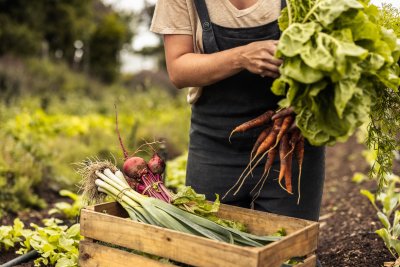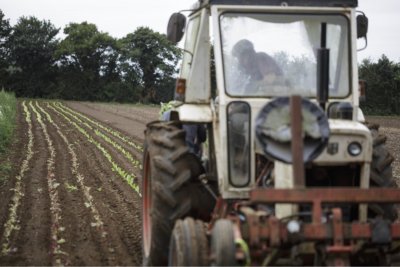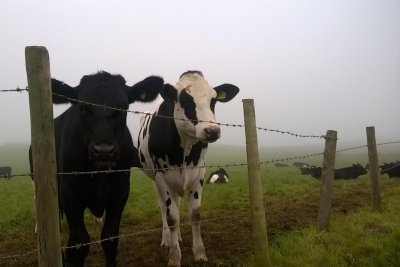News • Sustainable Farming Campaign
Agenda 2000 consulation (1999): Sustain Agriculture Policy Working party response
Sustain Agriculture Policy Working Party response to MAFF Agenda 2000 Consultation September 1999 on The Rural Development Regulation and Cap Regimes.
THE RURAL DEVELOPMENT REGULATION
Sustain's Agriculture Policy Working party welcomes the Government's consultation on the future of UK agriculture - A new direction for agriculture A Consultation document. See below for second response to the Horizontal Measures, Beef Regulation, Dairy Regulation, and Arable Regulation.
Our comments on both the general thrust of the proposals and in the greater detail reflect our concerns that the social, health and environmental impact of farming has been increasingly adverse over the past few decades. We have nearly 20 years of experience and research to draw on from the Alliance and from its membership of over 100 organisations.
Our main concerns are that the measures applied under the Rural Development Regulation must be given adequate funding (through Treasury funds, Modulation and innovative co-financing opportunities), and that they are viewed as a means to restructure the whole way in which UK agriculture is supported. This will ensure that protection of the environment, rural development, animal welfare and consumer health are at the heart of any support policies. We also urge the Agriculture Minister to ensure that the Treasury is aware of the benefits of these rural development initiatives. This is particularly relevant given the high current costs and potentially high future costs associated with the kind of farming systems which damage the environment, reduce rural employment and which create food safety problems.
A STRATEGY FOR AGRICULTURE
We welcome MAFF's attempt to define a strategy for agriculture in the UK and agree in principle with the four main priorities identified in paragraph 1.6 . We are, however, concerned at the overall emphasis given to the need for a competitive industry and towards restructuring in favour of concentrating farming in ever fewer hands. Such emphasis throughout the documents presented (in particular the economic notes) causes grave concerns. It suggest that MAFF is not really taking into account the needs for protecting rural communities, environment, animal welfare and consumer health, but solely the economic returns from farming and the desire to provide cheap raw materials for the food industry. We suggest this emphasis is seriously misjudged and can impede progress on the other, key objectives outlined in Chapter 1.
Paragraph 1.7 omits to mention the role of both Government and the food industry beyond the farm gate in working to achieve the goals identified and this we see as a serious omission. The Government clearly has a key role to play in achieving these goals. In addition, in many areas the role of food processors and retailers has been pivotal in shaping the recent developments in UK farming and we would like to see Government call on the industry beyond the farm gate to take some responsibility for this.
Both Government and indutsry have a role to play in ensuring that new farm assurance schemes are well designed, implemented and monitored.
AGENDA 2000 OPTIONS
As we will discuss later we find that the Government's position on training and new entrants both puzzling and inconsistent with the desire to create 'a competitive, diverse and flexible industry which is responsive to consumer wishes'. There is currently inadequate provision (in terms of access and cost to farmers and workers) of training in many aspects of farming including farm animal welfare and handling, environment and conservation, marketing, and food safety. MAFF must not pass up this opportunity to develop new and better ways of providing this training using part funding from the CAP budget. It is not enough to suggest that the industry itself can provide adequate training particularly given the current crisis in many sectors.
The issues of 'restructuring' is also puzzling. A competitive, diverse and flexible industry will not result from a polarised industry made up of a few very large farming businesses and an ever smaller number of part-time farmers. We need an influx of dynamic new entrants with energy and ideas alongside an early retirement programme. Introducing the latter without ensuring that new influx would seriously damage the industry and would also pass up an opportunity for creating jobs and enterprise in rural areas.
THE RURAL DEVELOPMENT REGULATION
Aid for marketing
Given the goal identified of ensuring the industry can meet consumer demand (Para 1.14) we would suggest that all three areas - capital grants, non-capital aid and training - all need adequate support to ensure that it is able to do so. In particular we believe that systems of farming such as organic and free range need far more assistance than that which they currently receive. More grants and training to ensure farmers can convert to such systems would ensure that the industry can respond to consumer demands (for instance 70% of the organic food market is currently met through imports).
In addition, farmers wanting to convert or introduce animal welfare friendly production systems are clearly and urgently in need of capital grants to build or adapt farm buildings to make the structural changes required. Using these funds to help them to achieve this would be an appropriate response to not only consumer demands but also the need to address health hazards associated with intensive livestock farming, and to tackle the on-going crisis in the UK livestock industry.
We strongly suggest that as part of the national Regional Development Plans that MAFF sets targets for development of these sectors so that aid is adequately and appropriately targeted with full consultation with industry, consumer, welfare and environmental bodies.
Scheme to support older people leaving farming
We see no reason why this scheme should be confined to sheep and beef farmers only as other sectors of the farming community should have the option of leaving. We also feel that the environmental (and we would add animal welfare) conditionality proposed for those taking over farms made available through the scheme is of too short a time-scale (5 years is suggested). As the taxpayer is aiding these recipients by making the transfer of land easier, they should receive more in return and a 20 year commitment to farm in an environmentally responsible way should be the minimum required. We would like more details on what these conditions would be and believe they should include commitments to join agri-environment schemes or using specific production methods (such as organic) which can enhance the whole farm environment.
However, as discussed above, we are not in favour of an early retirement scheme without a similar and associated scheme to support new entrants through start up grants and/or loans. Without such a linked scheme the proposal risks creating ever larger farms. This increases the potential for not only over -production (as these farms may well be more efficient in terms of yields) but also for reducing rural businesses and enterprise and for increasing rural unemployment. Such a restructuring would mean concentration in an industry which desperately needs new entrants and a diversity of sizes to respond to changing local, national and regional market demands.
Article 33 Projects
We fully support the need to provide aid to encourage sustainable development and rural economic activities associated with sustainable food production. This is a useful way of devising new local and regional approaches. We suggest that, in response to consumer demands and the need to ensure environmental and other benefits, that MAFF prioritise its funds towards projects that a. encourage local production and marketing schemes, b. use established sustainable approaches to food production such as organic, permaculture, genuine free range c. can enhance Treasury and non-government sector co-financing, d. show demonstrable benefits for local communities and employment and e. which are well monitored and evaluated so that value for money can be seen.
Agri-environment measures
Sustain sees these Measures as one of the best ways of delivering support to all European farmers. We suggest that the measures introduced should be seen as precursors to a whole new approach for CAP - moving away from production linked support. As such it is vital that there are adequate funds which MAFF must ensure are available through Modulation (see later submission), Treasury allocation, and co-financing via local authority schemes, the private sector and in-kind contributions.
Given that the OFS and CSS are, in theory, available to all farmers (unlike the ESA scheme which has geographic restrictions) and also that the OFS has legally defined and monitored standards in most aspects of production of concern to the consumer and public in general we believe MAFF should give these schemes priority funding. Given the rapid depletion of the new funds for the OFS, indicating a strong demand for conversion payments, funding should be allocated as a high priority to this scheme. For instance, to meet the current demand for aid in organic conversion would require �18 million and to get back on track, in terms of ensuring conversion grants are available over the next year, means a total of �30 million is required - far more than is currently available. This means MAFF must make every effort to secure funds through the Horizontal Measures and matching funds from the Treasury for this and the whole, severely under-funded, agri-environment programme.
Medium term developments depend very much on availability of funds but we would certainly encourage MAFF to consider options for developing whole-farm approaches to agri-environment, introducing a tiered system of support based on different levels of stewardship. As funds become freed up through the Horizontal Measures, MAFF must consider the options for an Organic Stewardship type scheme or an additional CSS scheme which reflects the benefits of a whole farm organic approach. The socio-economic impact and benefits must be assessed and monitored for any new scheme. MAFF must introduce farm animal welfare condistions to all schemes. Farm animal welfare (FAW) is closely related to environmental protection (and consumer health and safety) and all farmers and particularly those in receipt of any public funds, should be encouraged and supported in efforts to enhance animal welfare.
Energy Crops
We are in favour of renewable energy crops but it is vital that schemes to encourage them do enhance socio-economic development and ensure environmental sustainability. For this reason we would want to see conditions attached to such crops and a policy of encouraging the growing of crops which have the minimum environmental impact (such as minimum fertilisers and pesticide use).
Less Favoured Area Compensatory allowances
There is a clear need to move towards more decoupled payments based on environmental as well as social criteria and to avoid the current situation where subsidies encourage overstocking which can lead to animal welfare and environmental problems. For this reason, Sustain is in favour of converting support payments to area based payments with environmental conditions attached. Any such scheme must be phased in over time with appropriate training and advice provided to ensure this does not put unnecessary burdens on the LFA farming community.
Sustain Agriculture Working Party September 1999
OCTOBER 1999 - SECTOR MEASURES AND HORIZONTAL
Summary comments
We would like to repeat our view that these reforms and the analysis provided in the economic notes on restructuring provided a very one sided view of the options available to MAFF and the industry. It suggests that MAFF is not really taking into account the needs for protecting rural communities, environment, animal welfare and consumer health, but solely the economic returns from farming and the desire to provide cheap raw materials for the food industry. We suggest this emphasis is seriously misjudged and will lead to further regression with regard to progress on the other, key objectives outlined in Chapter 1.
Our comments on the areas highlighted by MAFF emphasise our belief that promoting extensive, environmental and animal welfare friendly farming carried out by a diverse and evolving farming industry is the best way forward. We see real benefits in ensuring the RDR is used to support farmers converting to better ways of farming which fit environmental objectives and consumer demands.
2.20 Beef Measures
Sustain's Agriculture Policy Working Part (hereafter, the Working Party) strongly favours the National envelope being used as area payments on permanent pasture used for rearing cattle. This is to minimise the impact of existing headage payments which encourage higher stocking rates and to recognise the considerable importance of biodiversity in pasture systems. The loss of grassland is one of the most pronounced effects of the intensification of agriculture. All opportunities to stall and reverse the situation must be seized. So the Working Party would want to see environmental and welfare conditions attached to such payments.
Should the Envelope be used to top up headage payments, we would at least expect to see some level of compliance with environmental and welfare considerations and would urge MAFF to restrict the top up payments to suckler cow and extensive systems to both encourage less extensive production and reduce overproduction as this has adverse health and environmental effects.
2.23 Managing the cut in suckler cow premium quotas
We are in favour of exemptions as listed in the consultation document as we see real economic and social value in ensuring that smaller farmers and those embarking on more animal welfare friendly approaches are able to continue operating. Care must be taken to ensure that the cut in quotas does not under any circumstances lead to an increase in intensive cattle rearing.
2.24 Extensification Payments
We are in favour of the two tiered LU/ha approach. This will ensure that more farmers are involved and that the whole concept of extensification is promoted and enhanced rather than made exclusive to fewer farmers.
2.26 90 Head limit on beef special premium claims
We are in favour of keeping the 90 head limit in the short term to ensure the continued existence of many struggling in the industry and to apply an element of modulation which ensures money is spread more evenly within the industry.
Dairy
There are considerable problems associated with quotas in Europe. They encourage farmers to chose cows bred for ever higher yields and to reduce herd size to use farm resources for other activities. This causes animal welfare problems as well as environmental problems associated with more intensive livestock production (concentrated animal waste, imported feeds etc.). Overall we would like to see siphons which ensure new entrants to the industry are encouraged and that any support for dairy is associated with environmental and animal welfare conditions (see later).
Arable
We would welcome the opportunity to respond to future changes to the arable regimes.
Horizontal Measures Regulation
Modulation
The Government should use the key opportunity that modulation provides to redirect money from support for production to support for progressing positive, publicly defensible aspects of UK farming. The Working Party favours an approach which ensures smaller and medium sized farmers are not penalised as they are generally both less intensive (and suitable for less intensive systems), and can less afford cuts in income. We do not agree that an across the board application of modulation (of say 5% of all direct payments to all farmers) would be equitable nor provide value for money. Larger farms benefit from both economies of scale, previously high levels of subsidies and in addition do not actually need the high level of subsidies they are attracting by their size.
We would therefore favour a tiered approach applying modulation on payments above a certain level (say �25,000) up to the maximum level of 20% applied to payments above �150,000. This would provide vital funds for the Rural Development Regulation which needs substantial support to provide for areas such as organic farming and animal welfare - thus allowing farmers to ensure they are 'responding to consumer wishes' as MAFF intends.
Cross Compliance
The Working Party is in favour of cross compliance as a means to ensure taxpayers' money is not being used for inappropriate farming approaches, to help farmers better understand the need to develop more environmentally and animal welfare friendly approaches, and to tackle some of the worst problems associated with CAP supported agriculture. As such, the Measure should be applied as soon as possible but conditions should be introduced with due consideration of the impact on farmer incomes, i.e. after extensive consultation and with a phased in period for compliance.
We urge MAFF to include animal welfare as a key element of any cross compliance strategy.
All farmers should already be applying the environmental and welfare codes of good agricultural practice (and any legal obligations), so this must not be a basis for cross compliance. We would see value in using the IACS forms as means of reminding farmers of their statutory obligations in these areas (such as obliging them to read the CGAP) but only as part of a greater obligations to improve standards.
If used, environmental conditionality should be applied to all farms in receipt in CAP subsidies irrespective of their locations and biodiversity/landscape importance. Those areas of high importance should receive additional attention and aid for protection via the RDR.
Some members of the Working Part suggest that MAFF considered a 'menu' of options for farmers to choose from. This could include some the following and wide consultation could provide many additional ideas:
- Agreement to adopt a whole farm plan for environmental and biodiversity management
- Agreement to develop a Farm Assessment Plan for resource use (energy, waste, management, soil, water etc.)
- Prepare a short plan for pesticide and chemical reduction on farm,
- Draw up a 20 year management plan for the forestry standard and forestry permission planning guidelines or active participation in a Community Forest Scheme to a minimum level of commitment.
- Convert to organic farming
- Use available training for workers and farmers (this requires MAFF to ensure such training IS available),
- A requirement to list environmental features or animal welfare approaches on IACS forms,
- An agreement to maintain and enhance important features
- An agreement to apply genuine IPM strategies with consideration of the detail to ensure that a minimum level of benefit can be delivered.
A menu of options would be an attractive and flexible way of delivering cross compliance to the framing population. It would avoid the risk that any one administrative structure is overloaded and could make use of bodies which already provide or could provide the services (such as approval and monitoring) for each option. Careful selection of the options should ensure that farmers are introduced to new ways of farming that they are likely to continue in to the longer term.
The Working Party would like to see any measures introduced incrementally and with full consultation to give farmers a chance to get used to the new, higher obligations.
Whilst we appreciate the additional administrative burden to both farmers and MAFF, we believe there are options available which will minimise these costs whilst allowing better accountability for the large sums spent under the CAP arable and livestock regimes. We urge MAFF to make maximum funding available from the RDR to ensure farmers and workers can obtain affordable advice, training and education to help them comply.
- ENDS -
Published Sunday 12 December 1999
Sustainable Farming Campaign: Sustain encourages integration of sustainable food and farming into local, regional and national government policies.





